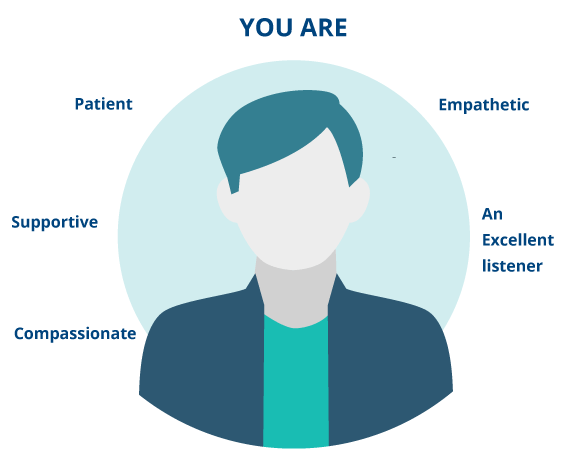Cognitive Behavioural Therapy: How It Helps You Rewire Negative Thinking
Unlocking the Secrets of Mental Wellness: A Summary of Counseling and Therapy Options
Mental health is a complicated and critical facet of general well-being. Countless counseling and treatment alternatives exist to attend to numerous psychological challenges. Each strategy uses distinct benefits and methods tailored to private requirements. Recognizing these alternatives is necessary for any person looking for to improve their mental health and wellness. Couples Therapy. What factors should one consider when exploring these opportunities? The solution may expose a course to a healthier emotional state
Comprehending Mental Wellness and Its Relevance
Psychological health and wellness includes the psychological, psychological, and social well-being of individuals, considerably influencing how they assume, really feel, and act. Its value can not be overemphasized, as it affects every facet of life, consisting of relationships, work performance, and general lifestyle. People with excellent mental health have a tendency to manage stress and anxiety better, maintain much healthier relationships, and make educated decisions. Conversely, bad psychological wellness can result in psychological distress, impaired functioning, and numerous mental problems, which may call for specialist intervention. Understanding mental health is necessary for identifying the indications of distress and the need for support. Awareness likewise promotes compassion and minimizes stigma, encouraging people to seek assistance when essential. By focusing on mental wellness, communities can foster atmospheres that sustain psychological health, eventually leading to much healthier, much more resilient individuals. This structure works as a vital step towards reliable psychological wellness therapy and treatment alternatives.
Sorts Of Therapy Approaches
Therapy strategies differ widely, each customized to meet the unique requirements of individuals looking for support. Among the most common kinds are cognitive-behavioral treatment (CBT), which concentrates on determining and transforming unfavorable thought patterns, and person-centered therapy, which stresses empathy and acceptance. Psychodynamic therapy explores past experiences and unconscious processes to recognize existing actions, while solution-focused brief therapy aims to determine solutions as opposed to examine problems.Additionally, household treatment addresses relational characteristics and interaction within households, cultivating healthier interactions. Group counseling gives a public space for participants to share experiences and support one an additional. Various other strategies include existential therapy, which motivates individuals to locate meaning and purpose, and art or music therapy, which makes use of innovative expression as a restorative tool. Each strategy offers unique methods and approaches, permitting clients to find the most suitable technique for their personal growth and healing trips.
Checking Out Different Treatment Methods
In the domain of psychological health and wellness therapy, various treatment techniques offer distinctive strategies to therapy. Cognitive Behavior modification stresses the link between ideas and habits, while Psychodynamic Therapy checks out subconscious impacts on psychological well-being. In Addition, Mindfulness-Based Strategies promote present-moment awareness as a way to enhance psychological policy and total psychological health and wellness.
Cognitive Behavior Modification
Cognitive Behavior Modification (CBT) sticks out as one of the most commonly exercised and investigated methods in mental health therapy. This approach concentrates on the affiliation in between actions, sensations, and ideas, stressing that modifying negative idea patterns can cause enhanced psychological well-being and behavior changes. CBT is structured, typically involving a limited number of sessions, and aims to outfit individuals with sensible skills to handle their signs and symptoms. It is effective for a variety of problems, including stress and anxiety disorders, anxiety, and post-traumatic anxiety condition. By making use of strategies such as cognitive restructuring and direct exposure treatment, CBT fosters strength and encourages customers to confront challenges head-on, making it a useful option in the landscape of psychological wellness treatments.
Psychodynamic Therapy Approaches
Psychodynamic therapy methods use a deep expedition of the unconscious mind and its influence on actions and emotional well-being. Rooted in Freudian concept, these techniques highlight the value of early childhood years experiences and unconscious disputes. Via techniques such as cost-free association, dream analysis, and transfer, individuals get understanding into their thoughts and sensations, promoting self-awareness and understanding. This restorative technique urges clients to uncover repressed emotions and unsolved issues, which can be crucial in resolving current mental obstacles. By taking a look at the interplay between present behaviors and past experiences, psychodynamic therapy intends to promote psychological recovery and personal development. Ultimately, it gives a structure for people to explore complicated inner dynamics that affect their psychological wellness.

Mindfulness-Based Strategies
While standard treatments frequently concentrate on previous experiences, mindfulness-based techniques prioritize present-moment understanding as a path to emotional health. These approaches, including mindfulness-based cognitive therapy (MBCT) and mindfulness-based stress reduction (MBSR), encourage people to engage completely with their ideas and sensations without judgment. Specialists find out to observe their psychological states, fostering a greater understanding of emotional triggers and reactions. This technique not only relieves signs and symptoms of anxiety and clinical depression yet additionally boosts total psychological durability. By integrating mindfulness exercises, such as meditation and deep breathing, customers grow a feeling of tranquility and quality. Eventually, mindfulness-based strategies equip individuals to navigate life's difficulties with enhanced understanding and acceptance, advertising a much healthier partnership with their emotions and ideas.
The Duty of a Specialist or Counselor
A skilled specialist or therapist plays a necessary duty in sustaining individuals with their mental health website link and wellness journeys. They give a risk-free, non-judgmental area where customers can share their thoughts and sensations openly. Cognitive Behavioural Therapy. By utilizing various restorative methods customized to each person's needs, therapists aid customers check out underlying problems that may add to their mental health and wellness challenges.Therapists provide advice and tools to deal with anxiety, anxiety, anxiety, and other emotional problems. Their training equips them to identify patterns in actions and assumed processes, assisting in insights that lead to individual growth. They likewise promote a solid therapeutic partnership, which is important for successful outcomes.Moreover, therapists continue to be committed to discretion and ethical standards, making certain a relying on atmosphere. Eventually, the role of a specialist or therapist is to equip individuals, motivating them to establish durability and healthier coping strategies while guiding with life's complexities
How to Choose the Right Counseling or Treatment Option
Picking the appropriate counseling or treatment option starts with reviewing specific requirements. It is necessary to recognize individual difficulties and goals before exploring numerous treatment designs. This foundational action can considerably influence the effectiveness of the selected strategy.
Examine Your Needs
Just how can people efficiently evaluate their mental health and wellness requires when evaluating therapy or therapy alternatives? First, they should assess their mood and identify particular problems, such as stress and anxiety, relationship, or anxiety challenges. Journaling can be a beneficial device for tracking thoughts and sensations gradually. In addition, individuals may gain from seeking comments click from relied on pals or household participants relating to perceived adjustments in actions or state of mind. It is likewise handy to assess personal objectives for therapy, such as enhancing coping abilities or gaining insight into personal patterns. Investigating different counseling techniques and their viability for particular needs can assist in making an informed selection. Eventually, self-awareness plays a pivotal function in selecting the best course for mental health support.
Check Out Treatment Styles
While traversing the varied landscape of treatment choices, individuals must think about numerous designs of counseling to discover the ideal fit for their one-of-a-kind requirements. Cognitive Behavioral Treatment (CBT) focuses on altering negative thought patterns, while Psychodynamic Therapy discovers unconscious procedures and previous experiences. Humanistic approaches highlight individual development and self-actualization, fostering an encouraging setting. In addition, mindfulness-based therapies grow present-moment recognition, helping emotional guideline. For those looking for structure, Solution-Focused Short Therapy targets specific objectives and options. Team therapy offers a public setup for shared experiences and support. Eventually, individuals should assess their choices, comfort degrees, and particular obstacles, ensuring they select a therapeutic style that reverberates with their personal journey toward psychological wellness.
Getting Over Barriers to Looking For Assistance

The Advantages of Therapy and Therapy for Mental Health
Seeking help for psychological health challenges can lead to substantial renovations in total wellness. Counseling and treatment offer people with a secure area to discover their feelings and ideas, fostering self-awareness and individual development. These expert solutions outfit customers with dealing approaches and analytical skills customized to their one-of-a-kind situations.Moreover, therapy can lower symptoms of anxiety, anxiety, and other mental health disorders, boosting psychological strength. Regular sessions advertise responsibility and urge people to set and accomplish personal goals. Via numerous therapeutic methods, such as cognitive-behavioral treatment or mindfulness practices, customers learn to reframe adverse thoughts and create much healthier behaviors.Additionally, the therapeutic relationship itself can be a resource of assistance, helping to fight isolation and solitude. Generally, engaging in counseling and therapy is a positive action toward accomplishing psychological health, allowing people to lead even more meeting lives.
Frequently Asked Inquiries
Exactly How Long Does Therapy or Therapy Typically Last?
The period of therapy or treatment varies substantially, frequently lasting from a couple of sessions to a number of months or years. Factors influencing this consist of the individual's details requirements, the kind of therapy, and therapeutic objectives.
What Should I Expect Throughout My First Session?
Throughout the initial session, people can expect an intro, conversation of worries, and the therapist's method. They might finish assessments and establish objectives, promoting a safe setting for open interaction and structure relationship.

Exist Any Type Of Dangers Related To Therapy?
Therapy can include dangers, such as emotional discomfort, susceptability, or confronting painful memories. While these difficulties might arise, they can likewise cause personal growth and recovery, making the healing process facility yet possibly satisfying.
How Can I Inform if My Therapist Is a Great Fit?
Figuring out if a therapist is an excellent fit includes examining convenience, communication style, and restorative method. Favorable relationship and progress towards goals are signs of an ideal suit, necessary for reliable psychological wellness assistance.
Will My Insurance Cover Counseling or Therapy Procedure?
Identifying insurance policy coverage for counseling or treatment sessions commonly calls for getting in touch with the insurance policy supplier directly. Plans vary significantly, so people ought to confirm advantages, co-pays, and any type of necessary pre-approvals prior to pursuing therapy services. Amongst the most common kinds are cognitive-behavioral treatment (CBT), which concentrates on identifying and altering negative idea patterns, and person-centered treatment, which stresses empathy and approval. Psychodynamic therapy explores unconscious processes and past experiences to understand current actions, while solution-focused short treatment intends to identify options rather than explore problems.Additionally, family members therapy addresses relational characteristics and communication within households, fostering much healthier communications. Various other techniques consist of existential treatment, which encourages people to locate definition and objective, and art or music therapy, which uses innovative expression as a restorative device. Cognitive Behavioral Therapy stresses the connection in between ideas and actions, while Psychodynamic Treatment discovers subconscious impacts on psychological health. Cognitive Behavioral Therapy (CBT) focuses on altering unfavorable thought patterns, while Psychodynamic Therapy checks out previous experiences and subconscious processes.